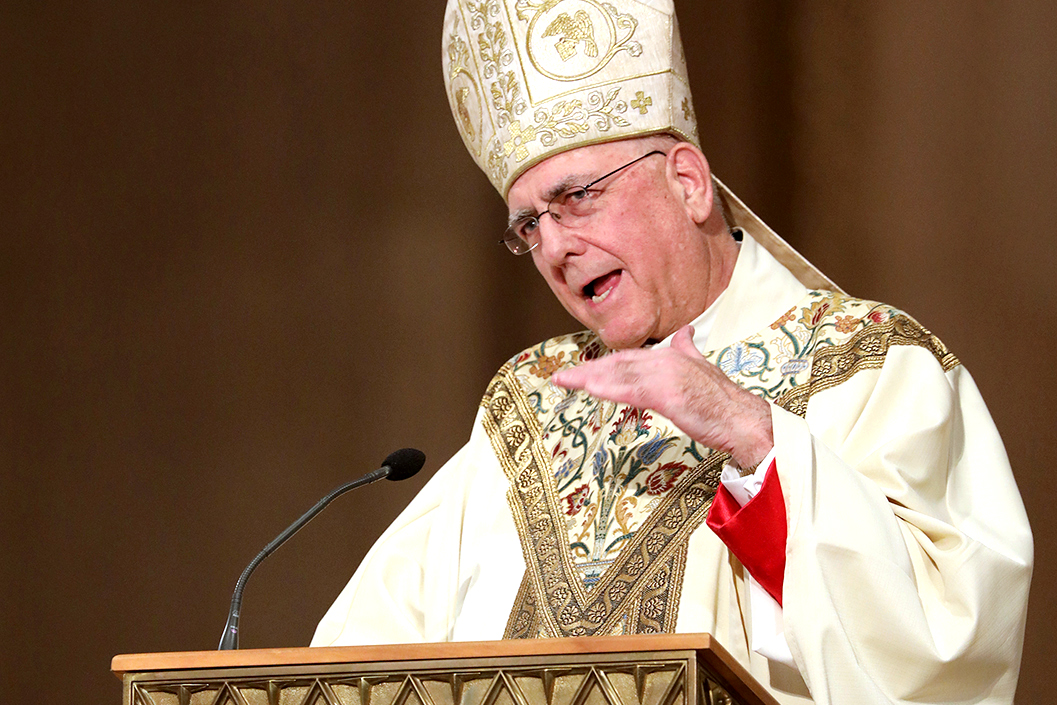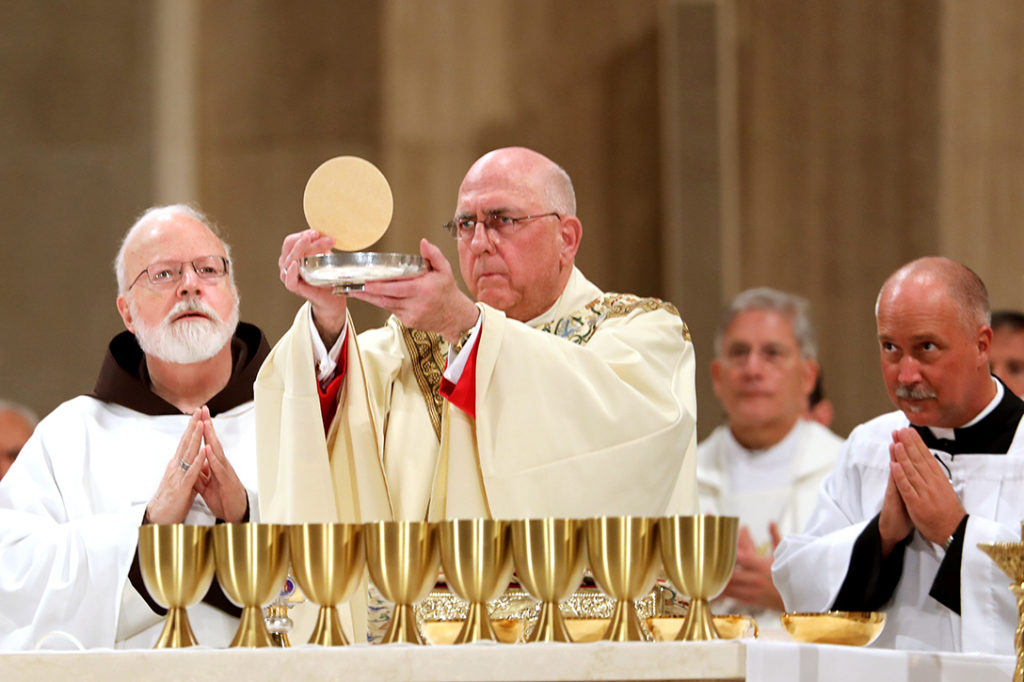
WASHINGTON (CNS) — Pope Francis “has our backs” in the pro-life cause, Archbishop Joseph F. Naumann of Kansas City, Kansas, said to applause in his Jan. 23 homily at the opening Mass of the National Vigil for Life.
During an “ad limina” meeting with bishops from Kansas, Missouri, Iowa and Nebraska Jan. 16, the week before, Archbishop Naumann said Pope Francis had told them, “If we do not defend life, no other rights matter.”
“The Holy Father said that abortion is first a human rights issue,” added Archbishop Naumann in his homily, delivered at the Basilica of the National Shrine of the Immaculate Conception in Washington.
“Pope Francis was aware of the March for Life in the United States and was delighted to know the anticipated large numbers of pilgrims, especially the participation of so many young people,” said Archbishop Naumann, who is chairman of the U.S. Conference of Catholic Bishops’ Committee on Pro-Life Activities.
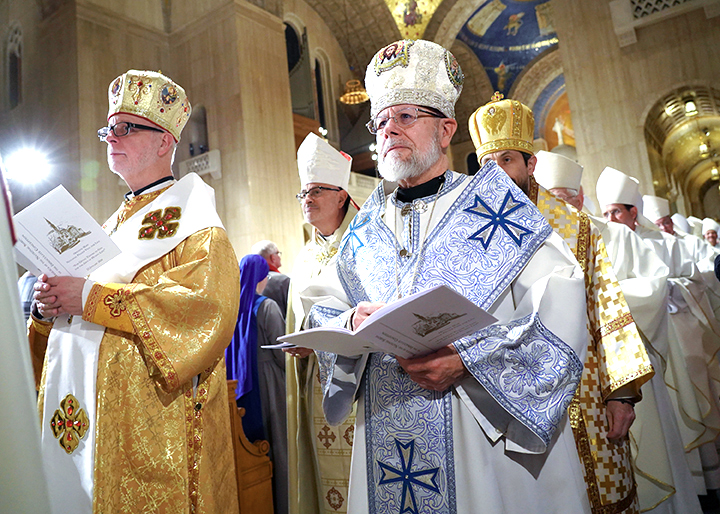
Although the “ad limina” meeting was confidential so that the pope and the bishops could speak freely, Pope Francis “encouraged me — I dare say, ordered me — ‘Please tell the pilgrims at the March for Life and the entire pro-life community: The pope is with you! He is praying for you!’” the archbishop said.
“God and 14 other bishops are my witnesses that Pope Francis was passionate in support of the Church’s pro-life efforts. The successor of Peter has our backs.”
Archbishop Naumann dwelt mainly in his homily on what he called a “moral ‘Twilight Zone,’” based on an episode of the old television science-fiction series in which surgeons worked time and again to repair a young woman’s disfigured face through plastic surgery. After the final operation, he recalled, the bandages were removed from the woman’s face and she is “stunningly, drop-dead beautiful.”
Surprisingly, the surgical team apologizes for their failure. “They remove their own surgical masks revealing their own grotesquely hideous appearance,” Archbishop Naumann said. “You begin to realize that in this fictional ‘Twilight Zone’ world, beautiful is ugly and the hideous is gorgeous.”
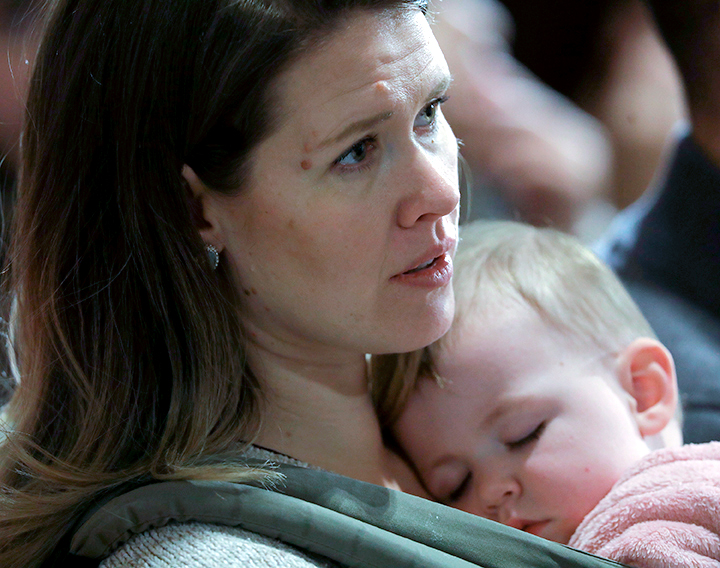
Such it is with abortion in American society, he asserted. “The killing of one’s child is exalted as heroic and brave,” he said. “Abortion was described by early feminists Susan B. Anthony and Alice Paul as the ultimate exploitation of women, but in this ethically topsy-turvy twilight zone, it is now hailed as the cornerstone of women’s rights.”
He told the worshippers, estimated at 10,000, inside the basilica, “Jesus never promised that discipleship would be easy. He told His first disciples that in order to follow Him they must be willing to take up their cross.”
Archbishop Naumann added, “In this cultural, moral twilight zone to stand for the sanctity of the lives of unborn children, you may face ridicule and social exclusion. You may be penalized in the academy and workplace.”
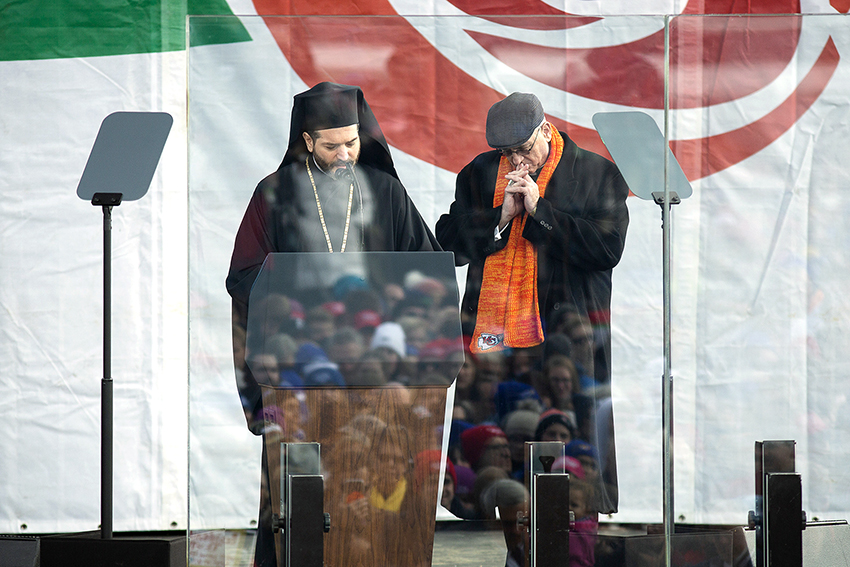
But he cited “signs of hope,” garnering applause when he talked about “our nation’s youth being more pro-life than their parents.” Archbishop Naumann said, “There is also reason to hope the United States Supreme Court, which imposed by judicial fiat our current liberal abortion policy, may be poised to return to states a greater ability to protect the lives of unborn children” through the reversal of Roe v. Wade, the 1973 decision that allowed legal abortion virtually on demand.
Archbishop Naumann also heralded the 25th anniversary of St. John Paul II’s encyclical “The Gospel of Life,” St. John Paul “did not make reference to any ‘Twilight Zone’ episodes,” he noted, but he said in the encyclical, “When conscience, this bright lamp of the soul, calls evil good and good evil, it is already on the path to the most alarming corruption and the darkest moral blindness.”
“Freedom separated from truth,” Archbishop Naumann warned, “in the end creates a tyrant state that allows and even encourages the disposal of life when it is weakest.”
During his visit with the Holy Father the previous week, Archbishop Naumann told Catholic News Service that the pope agreed with the U.S. bishops “identifying the protection of the unborn as a preeminent priority.”
“His response to that was, ‘Of course, it is. It’s the most fundamental right,’” Archbishop Naumann recalled the pope saying. “He said, ‘This is not first a religious issue; it’s a human rights issue,’ which is so true.”
Archbishop Naumann was one of 15 bishops from Iowa, Kansas, Missouri and Nebraska making their “ad limina” visits to the Vatican in mid-January to report on the status of their dioceses. He and other bishops spoke to Catholic News Service Jan. 16 after meeting with the pope for more than two hours.
Archbishop Naumann said he told the pope that since the Roe v. Wade court decision legalized abortion, an estimated 61 million abortions have taken place in the United States.
“I think the pope was truly kind of stunned by that number,” Archbishop Naumann said. “Sadly, our abortion policies are one of the most liberal in the world. The fact is that it really is literally for all nine months of pregnancy. Most other nations don’t permit (abortions) at least at a certain point in the pregnancy.”
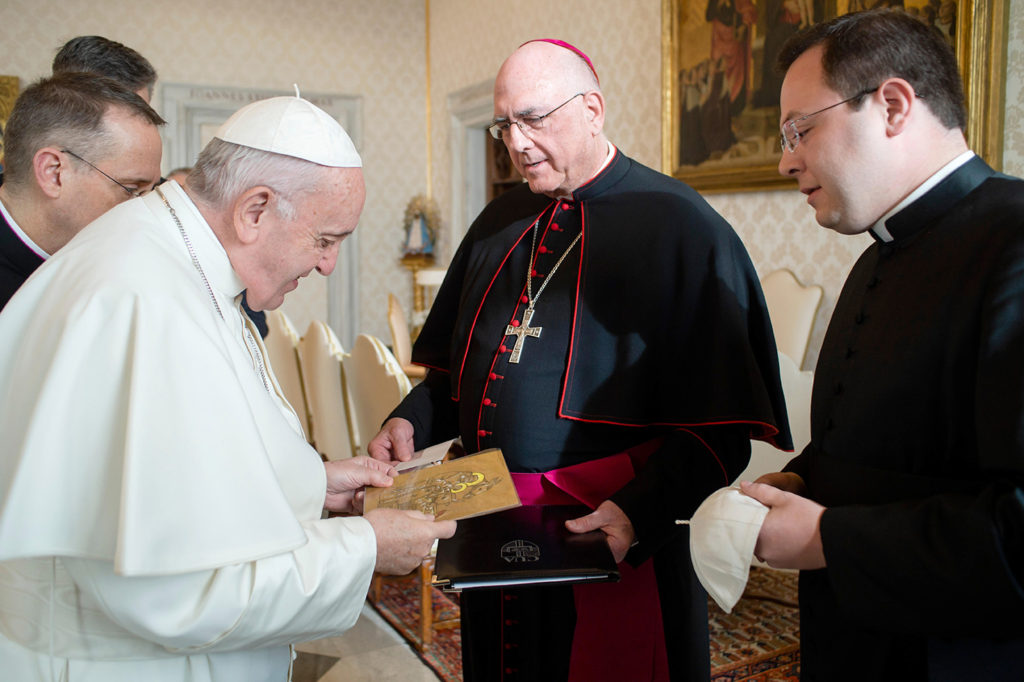
Archbishop Naumann said that while Pope Francis has “elevated issues like the care of refugees and migrants,” he also understands that the situation in the United States is different compared to other countries.
“I think sometimes as he elevates those things, people mistakenly think, ‘Well, that means that the abortion issue will become less important,’” he said.
Archbishop Robert J. Carlson of St. Louis told CNS that same day it was “beautiful” when the pope explained why life was the number one, most important issue, “because if you’re not alive you can’t do anything else.”
Archbishop Carlson said they also talked about the importance of supporting pregnant women and making sure they have the resources they need to support that life.
While Pope Francis “certainly talked about abortion as a preeminent issue,” Archbishop Carlson said, “at the same time he said there’s another significant issue and that would be ‘transgender’ — where we are trying to make all human beings the same, it makes no difference, you can be whoever you want to be.”
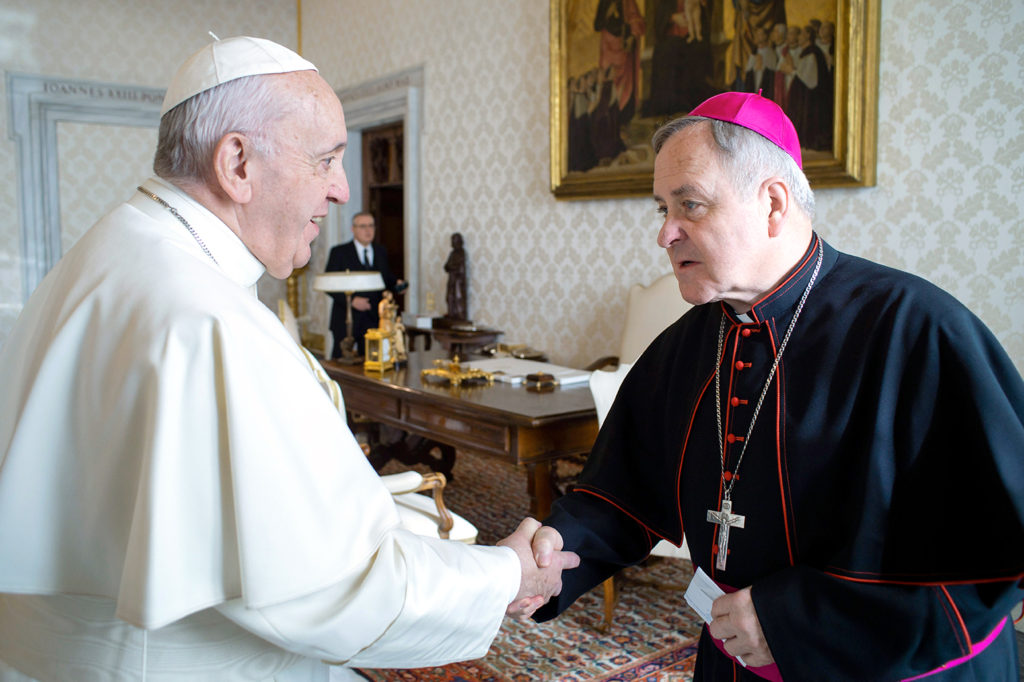
The pope, he said, brought the issue up as an example of “another significant issue in our day.”
Asked whether the pope then gave the bishops any advice on how to handle the transgender debate, Archbishop Carlson said the pope touched on the way proponents believe people are “all one and that there’s no difference, which would fly in the face of what (St.) John Paul II talked about on complementarity and it would fly in the face of the dignity of the woman and the dignity of the man, that we could just change into whatever we wanted.”
Of course, he said, a pope or a bishop or any religious leader must focus on a variety of issues and concerns, but “there are some people who are one-issue people and so they’re never satisfied if you don’t focus totally on that.”
The Catholic Church’s positions are not partisan political positions, he said, since both Democrats and Republicans may not agree with its position on different issues.
“But I am not a Republican, and I’m not a Democrat,” Archbishop Carlson said. “My job is to be a teacher of the faith and then to walk the talk.”
Contributing to this article was Mark Pattison from Catholic News Service.



